Did you know that there are natural ways to wash hair? There are many natural alternatives to shampoo for you to try.
What’s the purpose of washing your hair? Most people would answer with something along the lines of getting your hair clean. What you need to wash out depends on what you put in throughout the day.
In part 1 of this series, we talked about why harsh shampoos and silicone based products are bad for your hair. Go back and read the first post if you missed it! This week, we’re discussing shampoo alternatives and some awesome natural ways to wash hair.
For most people, a daily shower is needed to remove the product(s) you put in the day before so your hair is ready for the next round of chemical products. Except for product buildup, you will rarely have stuff in your hair that needs a harsh chemical detergent to clean it out. Even when my boys dump dirt and mud on each other while playing outside, they usually wash clean with just water or small amount of conditioner.
Once you break the sulfate and silicone cycle, you can wash most things out of your hair with just water. If you need a bit more, there are several commercially available and homemade shampoo recipes you can try.
If you are at the beginning of the transition to natural hair care, I would recommend using a high quality sulfate-free shampoo for a few weeks to lessen the negative side effects of a shampoo detox (more on this in Part 4).
Commercially Available Sulfate-free Shampoo
The market for sulfate-free shampoo has really exploded in the last few years. I personally have tried Deva Curl No-Poo Cleanser and found it worked very well. The trial pack has a reasonable price and provides enough product for a thorough evaluation. The small bottle of No-Poo lasted for almost a month of washing my hair every other day. There are several other commercial shampoos that I also tried, but the manufacturer just swapped out a sulfate based cleaner for another sulfate-free but still fairly harsh chemical detergent.
Natural Ways to Wash Hair: Washing With Baking Soda
When people stop using commercial shampoo the most common substitute is baking soda. The idea is that it’s a great, all natural cleaner.
However, baking soda can also be harsh on your scalp and hair. Kanelstrand has a post on how the extreme pH of baking soda and the usual accompanying vinegar can be very damaging over time. This is similar to the experience I had the first time I tried a no-poo routine.
I have read stories of great success and failures using baking soda. Each person will react differently, so this may or may not work for you. I do use baking soda about once a month to wash my scalp, usually when I get dirt or other gunk in my hair. If I use baking soda more often, my hair quickly becomes very dry and brittle.
Natural Ways to Wash Hair: Homemade Shampoo Recipes
While preparing for this article on natural ways to wash hair, I found several homemade shampoo recipes. I have not tried all of these yet, but I plan to soon. As I come across more ideas I will be pinning them to my natural hair care board.
- Organic Rye Flour Shampoo – This recipe may be a problem for those sensitive to gluten.
- Coconut Milk and Aloe Vera Shampoo
- Castile Soap Shampoo
Co-Wash: Washing with Conditioner
When washing your hair is just a routine removal of dead skin and dirt, a silicone-free conditioner can easily function as cleanser. After my initial transition away from sulfate shampoo, I switched to using an inexpensive conditioner to wash my hair. I use either TRESemme Naturals silicone free conditioner or Suave depending on sale prices. (I linked to Amazon to show you the products I use, but the prices are much higher that I normally find at the store. Don’t buy the Suave at that price, it is usually $1.50 for the large bottle.)
How to Wash Your Hair Without Shampoo
Shampoo creates a nice, bubbly lather that most people use to wash their scalp and hair together. This is necessary when you are trying to remove product buildup from your hair.
Once you eliminate undesirable products, it is usually unnecessary to wash your actual hair. Natural hair care involves washing just your scalp to remove dead skin cells and dirt.
It takes a bit to get used to the lack of lather and the idea of washing just your scalp. Focus on gently massaging a cleanser on your scalp and ignore your hair initially. In the conditioning phase, you will be adding a condition agent to the ends of your hair.
For creamy cleaners, place a small amount on your fingertips. Apply the cream as evenly as possible to just your scalp. It helps to lift up sections of hair and apply the cream from underneath. Using your soft fingertips and not your nails, massage your scalp. Rinse thoroughly with water.
For baking soda or watery cleaners, I’ve found a small squeeze bottle with a fine tip is very helpful. You can buy one in the hair care section (they often come in hair dye kits). I use an old bottle left over from a tie dye kit. Use about a teaspoon of baking soda and a small amount of warm water. Shake to mix and immediately squeeze it onto your scalp, rubbing gently with your fingertips. Then rinse. Although I have not tried it yet, this method will probably work well for the rye flour shampoo linked above.
Natural Ways to Wash Hair: Conclusion
I hope this information on natural ways to wash hair helped cover any concerns and questions you had about natural hair care. Do you use natural ways to wash your hair? If so, what do you do? If not, will you give it a try now? I’d love to hear from you in the comments below!
More Natural Hair Care Articles:
- How to Transition to Natural Hair Care
- Natural Ways to Condition Your Hair
- A Beginner’s Guide to Natural Hair Care

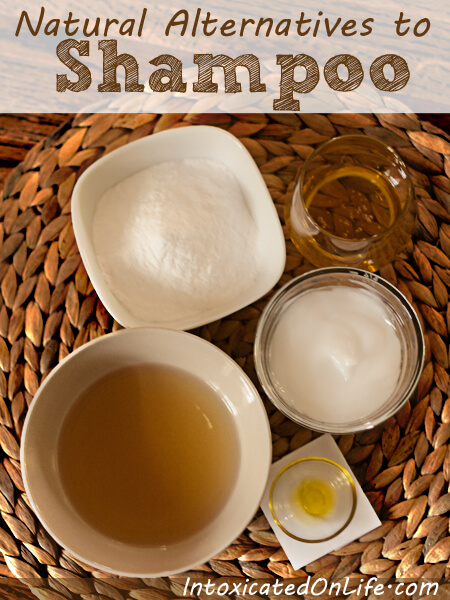
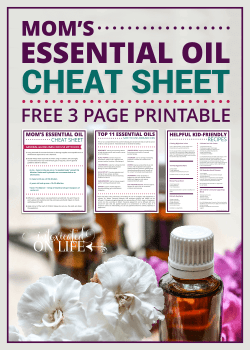
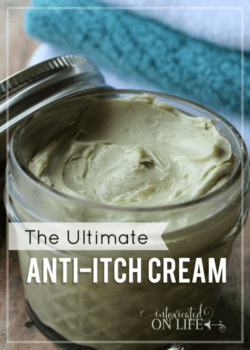
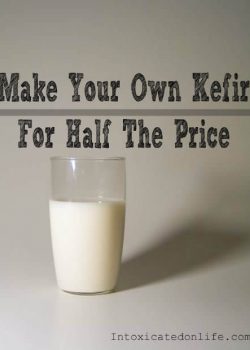
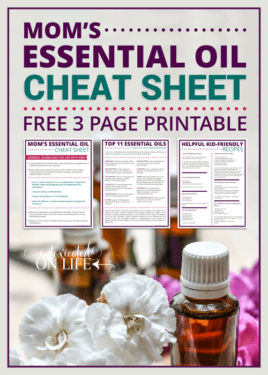

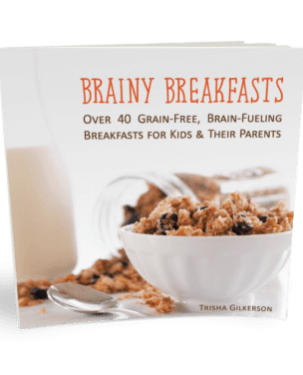



Is Everyday Shea a good product line for limiting chemicals/silicone/etc. in hair? I use the everyday Shea bubble bath and children’s conditioner on my children and sometimes myself… What are your thoughts on their ingredients. I have long, naturally wavy hair. I’ve recently switched over to “water-washing” my hair so I’m in a very greasy stage right now, and am curious if I used my children’s Everyday Shea products once in a while, if it would squash what I’m trying to do with my “water-washing.”
From the ingredient list its something I would definitely try. There isn’t anything in that I would expect product build up from, which is the main reason for avoiding the -cones. Some people have trouble with alcohol being drying (this has Cetearyl Alcohol in it), but I have not noticed it being a problem on my hair. Try it out for a few weeks. I’d love to hear how it works out for you!
I’ve been using Everyday Shea for about a year and I love it!
Have you ever tried the borax water method of shampoo? You put about an inch of borax in a bottle and fill it with water. Let it settle then pour the water off into another container, this is what you ‘wash’ your hair with. Then to balance the ph of your hair you mix 1/4 tsp citric acid with a quart of water and pour over your hair. I switched to this after my hair got dry as straw using the baking some and vinegar method. I’ve been using this for about 7 years with good results. Aloe Vera makes a nice leave in conditioner.
I’ve never heard of the borax method before! It sounds just like the baking soda method. With my hair, its probably too drying. But for people with a very oily scalp, it just may work. Thanks for sharing that idea.
Actually it isn’t as drying as the baking soda. I have also used Rhassoul Clay which is nice too.
So glad you posted on this topic! It seems like I have tried everything and have yet to find the perfect fit on what to do for my hair. I have done baking soda (it worked) but I had concerns at the the PH. I also do highlight my hair about twice a year and it seems like after I have to go through another transition all over again, I know dying hair and natural hair care don’t really go hand in hand but is there something that would work well for this combination?
When I have time I love “soaking” my hair in coconut oil for about 30 minutes before I hop in the shower and it really helps moisturize my dry hair. But I’m still stuck at what to do to clean my greasy scalp? (I have also tried castile soap recipes, and raw honey but neither worked for me).
When my scalp gets greasy or itchy, I use baking soda. I’m not thrilled with it, but its the best I’ve found so far. I try to only use it once a month. I have a few coconut milk recipes I want to try. And the one I linked to with the rye flour sounds good I just don’t have any rye flour laying around!
I color my hair all the time. It’s very damaging but I love being blonde (and pink!). Its one of those things that is worth it to me. I do ask my hairdresser to use sulfate free shampoo (I used to take deva curl shampoo with me to my appointment, now they carry it). A few days after coloring and/or bleaching, I do a deep conditioning treatment. My experience is that if I color my hair I have to be very careful about using heat. Straightening bleached hair is one very quick way to damaged it!
I first want to say that I got some good info/ideas from this post and am appreciative for it. I do want to air a caution though- in your recommendation of the Deva Curl No Poo Cleanser, I took a quick gander at the ingredients and immediately see things that should never be used. Propylene Glycol, which is a carcinogenic chemical. Diazolidinyl Urea which forms formaldehyde, also carcinogenic. And parabens- specifically methyl paraben, which has been directly linked to causing breast cancer in both men and women. All of these ingredients also, are synthetic, not naturally occurring. I don’t really believe they belong here, as most of the readers are looking for natural ways to clean hair. I also disagree with including other commercial products like TRESemme or Suave which are loaded full of unhealthy chemicals- for your readers who are making big changes to convert their lifestyles to more natural hygiene and are just learning, this can be misleading for many of them. I don’t mean to be offensive by my comment, I am only hoping that it be taken into consideration on behalf of your readers.
Thanks for pointing these things out Danielle. Like you said, these products do still contain some harmful products, but I believe Becky was trying to help people who are new to no-poo to move that way gradually. Certainly using some of these products on a very occasional basis is better than just using conventional shampoo and conditioner on a daily basis, like most Americans use. Obviously, still not ideal but for a lot of people this is a process where they take steps of cutting back gradually.
I have straight fine hair. I do highlights. It breaks off. Special the sides. It want grow. It’s oily can you recommend anything.